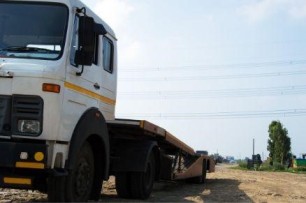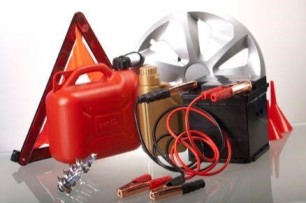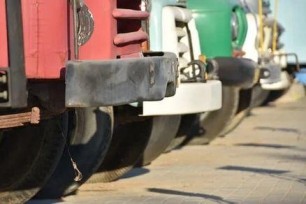General Insurance Blogs, Articles & Updates by - Magma HDI
Have us call you
- RENEW YOUR POLICY
- BUY NEW POLICY

Everything you must know about ecotourism and how it is gaining pace in India
India is a diverse country with rich history, culture, and traditions, making it a worthy place for tourists. The tourism industry of India has been booming in the last couple of years and is marking a strong comeback post-pandemic. People from far and wide are visiting the country to witness its beauty, elegance, and charm. From the grand Taj to the charming little town of Darjeeling, India receives immense tourism every year.
The travel sector in India is upgrading itself to satisfy the changing requirements and interests of travellers. One such emerging aspect is ecotourism. Ecotourism is one of the growing segments of tourism in India. If you want to know more about ecotourism, this article is for you.
When embarking on an ecotourism journey, ensure that you prioritise your safety. And you can achieve this by purchasing online general insurance to add a safety net to your travel.
What is Ecotourism?
The main objective of ecotourism is to focus on mother nature and promote the ecosystem's sustainability. It facilitates a healthy relationship with nature and its elements to ensure that tourists spend more time preserving the environment. It promotes sustainable activities that are mostly outdoor and prohibits any action that can harm the environment.
Why is Ecotourism gaining pace in India?
India has a diverse variety of flora and fauna and is home to several zoological parks, wildlife sanctuaries, national parks, biological reserves, and botanical gardens. The country has been able to save its natural beauty till now.
With ecotourism, it aims to do it further by maintaining and promoting sustainable activities not only in wildlife sanctuaries but also in high mountains, and lush green valleys.
What are the advantages of Ecotourism?
In a naturally rich country like India, ecotourism is an ever-growing tourism segment. It also encourages plenty of other natural initiatives that contribute to the well-being of the ecosystem. The several advantages of eco-tourism are:
● The sole preservation of flora and fauna
● It generates awareness about the tribal communities and brings them into the limelight
● It is a significant platform for raising awareness about social and environmental issues in a particular area
● It is a great field for generating revenues. The revenues earned here can be utilised in the development of the country
● The remote and lesser-known areas of the country are developed under eco-tourism
● Tourists are made familiar with the diverse species of flora and fauna thriving in the country
● Tourists spend more time outdoors with nature and communities
● It develops a loving relationship with nature
Ecotourism is gaining momentum rather quickly in India. In the coming years, you can expect it to emerge as a pivotal activity that preserves the heritage and maintains sustainable tourism at local destinations. If you're a nature lover or love exploring the unknown, then ecotourism will greatly benefit you. You can undertake many activities, including trekking, camping, cycling, hiking, bird watching, wildlife photography, and farm stays, among others, to feel one step closer to nature's unmatched beauty!
You must understand that safety is paramount regardless of the destination you go to for your next ecotourism vacation in India. You can achieve this by investing in an online general insurance plan that caters to all your travel safety needs.
Click HERE to buy an online general insurance policy.
Disclaimer: The information provided above is for illustrative purposes only. To get more details, please refer to policy wordings and prospectus before purchasing a policy.

Let's understand the difference between the policy of homeowners and renters
Owning a house is a lifelong dream for most, but it comes with its own set of challenges. Analysing the market, arranging the funds, making remodelling decisions and getting house insurance takes a lot of time and research. However, renting a house is no picnic either.
Looking for the perfect house, checking out the neighbourhood, ensuring safety, inspecting the amenities, budget, shifting, agreements, meeting the landlord, etc., are significant factors that need to be considered before making a final decision.
Whether you are a homeowner or renter, you need to get insurance. Owner's and renter's insurance have different terms and conditions, and the policies are structured accordingly.
Are you confused between the two and find it challenging to figure out their differences? Let's understand the difference between the policy of homeowners and renters with specific pointers to help you find a suitable policy for you.
1. Coverage:
While homeowner's insurance covers the building, garage and other structural amenities, the renter's insurance covers your personal belongings and property. The landlord is supposed to have insurance cover for the building.
2. Coverage cost:
The homeowner's insurance covers the cost of your home in case of a complete loss. Additionally, it also covers personal property like jewellery, appliances, apparel, etc., that gets damaged or becomes completely irretrievable due to the circumstances. On the other hand, renter's insurance only covers the replacement cost for your lost or stolen possessions on the property. It does not cover any damaged or destroyed possessions.
3. Price:
Given the coverage, it is understandable that renter's insurance is cheaper than homeowner’s. This varies due to the renter's insurance's limited scope as compared to the homeowner's.
4. Factors that are considered:
The factors that decide the price of the homeowner's policy include the type of property, the amount of personal property you need coverage for, location, etc.
For renter's insurance, the amount of personal property coverage and the area you live in are considered essential factors determining the price.
5. Other liabilities:
Homeowner's insurance incorporates personal liability coverage. This covers the legal fees if someone gets injured on your property. The homeowner's and renter's insurance cover living expenses if you need alternative accommodation solutions due to house damage, disasters, fire, etc. If you or someone else gets injured in your home, your insurance will cover their medical expenses too.
6. Which one do you need:
Renters need to verify that they get renters insurance, medical coverage and a personal liability policy. Several homeowners take renters insurance to avoid further hassle and disputes about financial loss.
In the case of renting out your property, you need to ensure that the homeowner's insurance has adequate coverage and doesn't lead to any confusion or disputes. You can always check with your insurance agent before renting out your property, whether it's a small space or a lavish villa.
Insuring your home is paramount. Never skip on the benefits that home insurances offer. Browse through different plans and purchase the best house insurance India. Make a smart investment, and rest assured.
Click HERE to know more about house insurance India.
Disclaimer: The information provided above is for illustrative purposes only. To get more details, please refer to policy wordings and prospectus before purchasing a policy.

Here are a few tips for maintaining commercial vehicles
Maintaining commercial vehicles like trucks, carriers, tempos, cars, etc., can be challenging at times, but it is common knowledge that regular maintenance ensures a longer lifetime of vehicles. And missing out on these services will result in expensive repair works that can put a load on your pocket.
Hence a wise option is to follow a regular maintenance regime for your vehicle and invest in motor insurance that provides several benefits while also helping you stay on a budget.
Today, we'll look at ways to ensure your commercial vehicles stay in their best shape.
1. Keep a vehicle checklist:
Since various drivers use and drive commercial vehicles, maintaining a checklist is a good idea. This will ensure that each driver is reminded to check fuel levels, tyre pressure, brake systems, and batteries before making a trip. After the initial check is done, they will know all the shortcomings and fix them before departure.
2. Change engine oil:
Since the oil in heavy commercial vehicles can be spoiled by dust and small dirt particles, it is advisable to change it regularly. Polluted oil can affect the optimal functionality of vehicles and cause various issues during the trip that will be expensive to fix. The oil filters should also be changed frequently to avoid an accumulation of dust and other residues.
3. Engine maintenance:
Excessive smoke, decreased power, and loss of oil pressure are a few indicators of engine failure. Ensure that the engine goes through professional checks to identify any additional defects. These procedures involve exhaust temperature, monitoring engine cooling, and boost pressure.
4. Inspect tyre pressure:
For the maximum value of tyres, keeping a check on the tyre pressure is non-negotiable. Commercial vehicles do not stick to one kind of road. They traverse various terrains to cover long distances and undertake multiple business operations. Inspecting the tyre pressure is the best way to increase the life of tyres. Another way of ensuring better health is by rotating the tyres before they wear out.
5. Keep the vehicles in the shade:
Keeping commercial vehicles away from the harsh climatic conditions when they're not under operation helps maintain their shape for extended periods. If garages and sheds are not an option, you can opt for vehicle covers. They also help in keeping the chassis of the vehicle clean.
6. Train the drivers:
Training the drivers in performing minor repair works can help you reduce maintenance costs in the long run. Conducting drills on maintaining the vehicle and dealing with emergencies as a team can help them understand basic procedures and share ideas and tricks.
Compensating your drivers for putting in extra work, providing health insurance, and good living quarters is an excellent way to ensure that the drivers are well-rested and taken care of. This way, they are less likely to cause accidents.
These were a few ways to ensure the better health of your commercial vehicles. Owning a business that includes commercial vehicles comes with its own set of challenges, but regular upkeep and servicing can ensure reduced cost and investment in the long run.
Do not forget to invest in motor insurance, as it will add value to your service by providing a safety net against all expenses in an unprecedented situation such as accidents or machine failure.
Click HERE to know more about motor insurance.
Disclaimer: The information provided above is for illustrative purposes only. To get more details, please refer to policy wordings and prospectus before purchasing a policy.

Following are the five common home insurance claims that homeowners usually make
Every homeowner must invest in home insurance to rely upon in case of unforeseen events. It secures not only your house and its belongings but also the residents. Whether it is due to weather-related damages, unforeseen break-ins and theft, or unfortunate fires, a reliable home insurance plan can efficiently help you through these challenges.
The percentage of homes insured in India remains significantly low at a mere 1% compared to the U.K, U.S, Australia, and France, which stand at 97%. Indians still need to realise the importance of home insurance and its benefits in securing lives and properties.
While it is vital to invest in the best home insurance plan, knowing if it covers all your requirements is equally essential.
Let's look at the most common home insurance claims that homeowners usually make.
1. Fire inside the house:
Some of India's most common home insurance claims are registered for unforeseen fires. A fire can take place anywhere, anytime. Overheating of appliances in the summer heat and sparking of electric wires due to poor insulation are often the sources of fires inside the house. The interiors of a home are filled with various materials, like wood, that can quickly catch fire. These fires can be controllable only if detected in time. But, if not, they can cause irreversible damage.
2. Fire on the home property:
While fires inside the home can cause significant damage, fires on the entire residential property can be disastrous. Fires caused by gas leakages, water leakages into electric circuits, short circuits, etc., can threaten the whole structure of the house. Homeowners' losses due to these fires are overwhelming and are commonly filed as home insurance claims.
3. Break-ins and theft:
Break-ins and theft have become a common occurrence that several people nationwide complain about. Even with the most advanced, complex, and dependable security systems, thieves break in and steal valuables in the wee hours of the night. Troubled homeowners frequently seek insurance claims concerning the damages caused by these break-ins in their property.
4. Landslides and Flooding:
Many states in India face natural disasters such as landslides and flooding. These natural tragedies are another common reason for filing a home insurance claim. While the coastal areas face annual flooding, the hilly regions of the country witness frequent landslides during monsoons or deforestation. These natural disasters cause heavy damage to the properties. In such cases, home insurance plans can help manage the recovery of financial losses.
5. Man-made disasters:
While natural catastrophes cause enough property damage, human negligence can cause just as much damage. Failure of homeowners or the people living around them can threaten the home or property. Water leakage, using low-quality products, improper care of the property can destroy not only your own home but also of your neighbours.
The above are the most common home insurance claims filed by homeowners. Sudden natural or man-made events can cause significant damage to your home and life. While we can be as cautious as possible, there are unforeseen events that we cannot escape.
Investing in home insurance India secures your future from unpredictable events that can cause severe damage and losses. Stay free from the monetary stress and add value to your priceless possessions with the safety net of the proper insurance to receive good returns on your investment!
Click HERE to buy reliable home insurance India.
Disclaimer: The information provided above is for illustrative purposes only. To get more details, please refer to policy wordings and prospectus before purchasing a policy.

Complete guide to choose the best flooring for your home
While building your home or renovating your existing apartment, design, furniture, wallpapers, paints, etc., are just some of the many things you need to consider. However, one of the lesser talked about things is the house's flooring. Choosing a floor involves various factors such as climate, the people, pet and child friendly etc. Having an interior designer can significantly help you in selecting the right fit for you.
Sometimes, even the best flooring can show defects due to various climatic and other factors, and you might need to change your flooring after a while. This is when your insurer plays a significant role. Your insurance provider will take care of the extra expense that you have incurred in the process of revamping your floors due to the damage. Keeping these things in mind, opting for the best home insurance in India should be your first step to building your dream home.
Today, we will be looking at a complete guide that will help you choose the best floors for your home.
1. Lifestyle:
Depending on the lifestyle of your family members, your flooring preference will change. e.g., if you live with older people, you might want to look for floors that provide some friction and prevent the cold. Hence, choosing a floor that serves functionality and style is essential. If you are a pet parent, you might want to opt for textured floors to ensure that your pet’s joints and muscles remain in proper health.
2. Durability:
Quite literally, your house stands on your floor. Hence, it is essential to opt for durable floors. Paying a slightly higher price for quality material ensures that your floor stands the test of time and sustains all the pressure.
3. Weather conditions:
Weather conditions are the driving factors in flooring selection. You need to keep your house warm. It is wise to invest in wooden floors and add carpets to ensure your floor remains warm throughout. Marble flooring is a smart option for hot or warm places as it retains the cold temperature during the night and keeps your house cool.
4. Colour theme:
While we discuss the floors' functionality and cost-benefits, choosing a floor that goes well with your house's colour and the theme is also important. An interior designer can suggest the latest trends and flooring patterns that add value to the interiors of your house.
5. Maintenance:
Opting for fancy flooring and sticking to a theme is just the first step in ensuring the longevity of your floors. It is also essential to go for options that are easy to maintain. Floors such as quarry tile, carpet tile, epoxy flooring are all examples of durable yet low maintenance flooring. The only thing these floors require is daily sweeping and deep cleaning once a month. On the contrary, high maintenance flooring requires regular upkeep and intense cleaning to avoid discolouring and scratches.
The floor is what holds your room together, so choosing the right floor can make or break the look of your room. The above discussed are a few points that you can look out for before selecting the best flooring options for yourself.
Compare the prices in the market to make sure that you are getting the best quality products for your home. Another good option would be investing in the best home insurance in India to safeguard your home against unforeseen circumstances. Remember, your floor selection is about balancing your requirements with your style. Use the internet and look out for various brochures and more ideas online.
Click HERE to know about the best home insurance in India.
Disclaimer: The information provided above is for illustrative purposes only. To get more details, please refer to policy wordings and prospectus before purchasing a policy.

The best car accessories and extensions that can safeguard your vehicle from damages
Several car owners consider their vehicle to be an expression of themselves. Car enthusiasts may pick aesthetic modifications for their beloved vehicle in the same way a person chooses particular outfits to showcase the style quotient.
Remember, having automobile protection accessories may help prevent any slight or significant wear and tear that occurs over time. Such accessories will undoubtedly keep your vehicle spotless, increase its longevity, and add value to your car.
However, you must strike the correct balance between aesthetic and practical modifications so that your vehicle stands out in terms of both elegance and convenience. Here are several useful and practical extensions to enhance your vehicle's overall quality.
1. Additional fog lamps:
When the primary headlights fail, the extra fog lights turn on. These are primarily helpful if the battery is dead and no other power source is available. They also use the braking system to minimise acceleration in certain circumstances, leading to a lower speed when the vehicle meets an obstacle and preventing it from veering off the road.
2. Side moulding on the body:
This is an excellent option for vehicle owners who wish to armour their cars and protect them from knocks and dents on the road. The resilient material is elastic enough to absorb the impact of slamming car doors against your side. When buying a body side moulding, you can pick from various designs and colour choices to enhance the appearance of your car's exterior.
3. Tyre-pressure monitor:
Some individuals are picky about certain aspects, while others are not. A tyre pressure monitor set could interest you if you fall into the first group. Your car's tyres should always be in perfect condition, and this device guarantees that they have the correct pressure for travel. If there is a deviation, the monitor will notify you to remedy the problem.
4. Grill protectors:
A strong grill shield protects the front of the car from severe damage caused by pebbles, tall grass, and anything that it may kick up. It can also secure the driver and passengers in minor accidents or collisions with other vehicles or wildlife.
5. Jump starters:
A jump starter may serve as a backup power source when your four-wheeler's battery fails. If you like taking long road trips, it is advisable to have a jump starter tool kit in your car. This equipment becomes even more important when driving on frigid terrains or secluded locations.
6. Hydraulic jack:
Always keep a hydraulic jack handy in your vehicle. This mechanical tool can be of great help when you need to change the tyre in case of a puncture. A hydraulic jack can reduce the mechanical effort involved in tilting or lifting the vehicle.
You can select from a plethora of accessory packages and accessible alternatives to further safeguard your four-wheeler. However, before purchasing protective gear, examine how you will operate them for the best benefit of your car's safety and needs.
Aside from protective extras such as tyre pressure monitoring, keyless locking, and additional bumpers, protecting your car with motor insurance is an investment that will surely pay off in the long term. It will provide you with a hassle-free car experience without jeopardising your safety. Therefore, look for the best motor insurance company in India to protect your car, yourself and other drivers on the road.
Click HERE to connect with the best motor insurance company in India.
Disclaimer: The information provided above is for illustrative purposes only. To get more details, please refer to policy wordings and prospectus before purchasing a policy.

Six best tips for the newcomers in fishing
Fishing is an easy sport that can be enjoyed by people of all ages. Many people like to camp near fishing sites and spend time with family and friends. The excitement of holding the rods and attempting to catch a fish and cook it into a delectable dish is a joyful experience.
While fishing is a simple sport, newcomers interested in trying their hand at it might find it difficult to get started. Catching the first fish is a memory to cherish throughout your life, and this blog will help you accomplish that.
Let's discuss the six best tips for newcomers to get started with fishing easily.
1. Research:
It would be best to do some research before heading straight to the pond with your fishing rod. Get a general idea about fishing. Read some books on the basics of fishing to understand the process. You may even watch a few tutorials online to clear the fundamentals of preparing the rod, using the bait, and understanding the techniques involved.
2. Basics:
After you are done with your research and are familiar with the terms and equipment used in fishing, you can get started by understanding the basics and pre-fishing tasks. For example- you can learn how to put baits on the hook, tie knots, etc.
3. Bait:
You need to know about the various types of baits that attract different fish. For example, raw chicken liver attracts catfish. Adding the wrong bait can make it difficult to catch a fish. So acquaint yourself with the proper knowledge about different types of fish and the tricks used to catch them.
4. Location and weather:
Be mindful while choosing a location for your fishing trip. Look up the site on the internet and learn more about the water bodies and the types of fish that might be available (if any). A cloudy sky is considered to be the best weather for fishing. You can also catch fish in other weather conditions, but an overcast sky speaks magic comparatively. If you are not aware of the proper conditions for fishing, it could be a disappointing experience not to find anything to catch.
5. Apparel:
You need to dress for the occasion. In the case of fishing, wear boots since there is a slight chance that you might have to (or by accident) paddle into the water while catching a fish. Dressing according to the weather would make the fishing experience better for you. Wear layers if it is cloudy and chilly. Tie your long hair into a ponytail to avoid getting distracted.
6. Bug spray:
Make sure that you carry bug spray. The places around these water bodies tend to have a lot of bugs and insects (mainly mosquitoes), which might cause trouble while fishing and can get you sick if you are not careful. Using an itch-free bug spray is advisable for a comfortable fishing experience.
That's a wrap on the six best tips for newcomers in fishing. You have to be quiet around the edge of the water bodies to catch fish efficiently. Even a slight mistake can be risky and may land you into unwanted trouble. So, get the best personal accident insurance India to protect yourself against any unfortunate incidents and make your fishing experience a memorable one.
Click HERE to know more about how you can buy the best personal accident insurance India.
Disclaimer: The information provided above is for illustrative purposes only. To get more details, please refer to policy wordings and prospectus before purchasing a policy.

A complete guide for first time commercial vehicle buyers
Whether you're looking to purchase your first pickup vehicle, minivan or heavy-duty truck, there are several aspects to consider beforehand. The process of buying a commercial vehicle can be daunting for first-time customers. An excellent place to start is to gain enough basic knowledge about trucks to understand how they will meet your requirements. In contrast, existing truck owners should focus on increasing the benchmark performance of their present fleet.
If you fall in either of the categories, here are some pointers to help you while buying a commercial vehicle.
1. Research your way into it:
Regardless of your level of knowledge about commercial vehicles, most showrooms would be happy to assist you. However, doing some comprehensive research as part of the purchase process will help you better understand commercial vehicles before going to a dealer.
Talk to people in your known circle who own commercial vehicles. Find out what goes into daily and long-term maintenance, and get details about performance and cost. Read through buyer reviews and do plenty of research online.
This may appear a tedious task, but buying a commercial vehicle is a significant investment. If you go for the wrong product, it can cost your company in the longer run.
2. To help you make a better decision, ask yourself these questions:
What kind of chassis am I looking for?
Chassis is your vehicle's structural backbone. Fuel will be wasted if you use a chassis that is too large for your needs. On the other hand, a tiny chassis might cause your vehicle to get overloaded, requiring you to make additional trips, wasting time and fuel, and reducing efficiency.
How much power do I require?
When the vehicle obtains the best torque at a low engine speed, the overall fuel consumption is lower than when the engine is operating at maximum speed. So choose a vehicle with an engine designed to provide maximum torque at the speed at which the vehicle will primarily operate most of the time.
What type of tyres am I looking for?
Tyres support your truck in operating at its maximum design speed safely. When moving, they should provide as little resistance as possible. If your vehicle involves driving on high-speed routes, low-rolling-resistance tyres might be beneficial. For small trucks, remember that tyre maintenance is more important than tyre selection.
Which fuel will my truck need?
Although most commercial vehicles run on diesel, alternative options are gaining popularity due to growing fuel prices and environmental concerns. Hybrid electric engines can be helpful for trucks dealing with a large number of small deliveries.
An increase in fossil fuel prices may make these alternative fuels more tempting for your applications. Still, given the current market, you should do thorough research because these options have challenges, fewer refuelling or charging stations, to name one.
Purchasing a truck is a significant financial investment for anyone. A good vehicle can be your business's maker or breaker. It is an asset that needs regular servicing and maintenance to perform at its best. In addition to doing extensive online research for some valuable takeaways to buying a commercial vehicle, you also need to study online motor insurance that can provide financial cover to your vehicle against any mishap. While making the most impactful investment of your life, it is also crucial to get online motor insurance for your purchase to help you be carefree when it travels miles for your success.
To know more about online motor insurance plans for your next commercial vehicle, click HERE .
Disclaimer: The information provided above is for illustrative purposes only. To get more details, please refer to policy wordings and prospectus before purchasing a policy.


